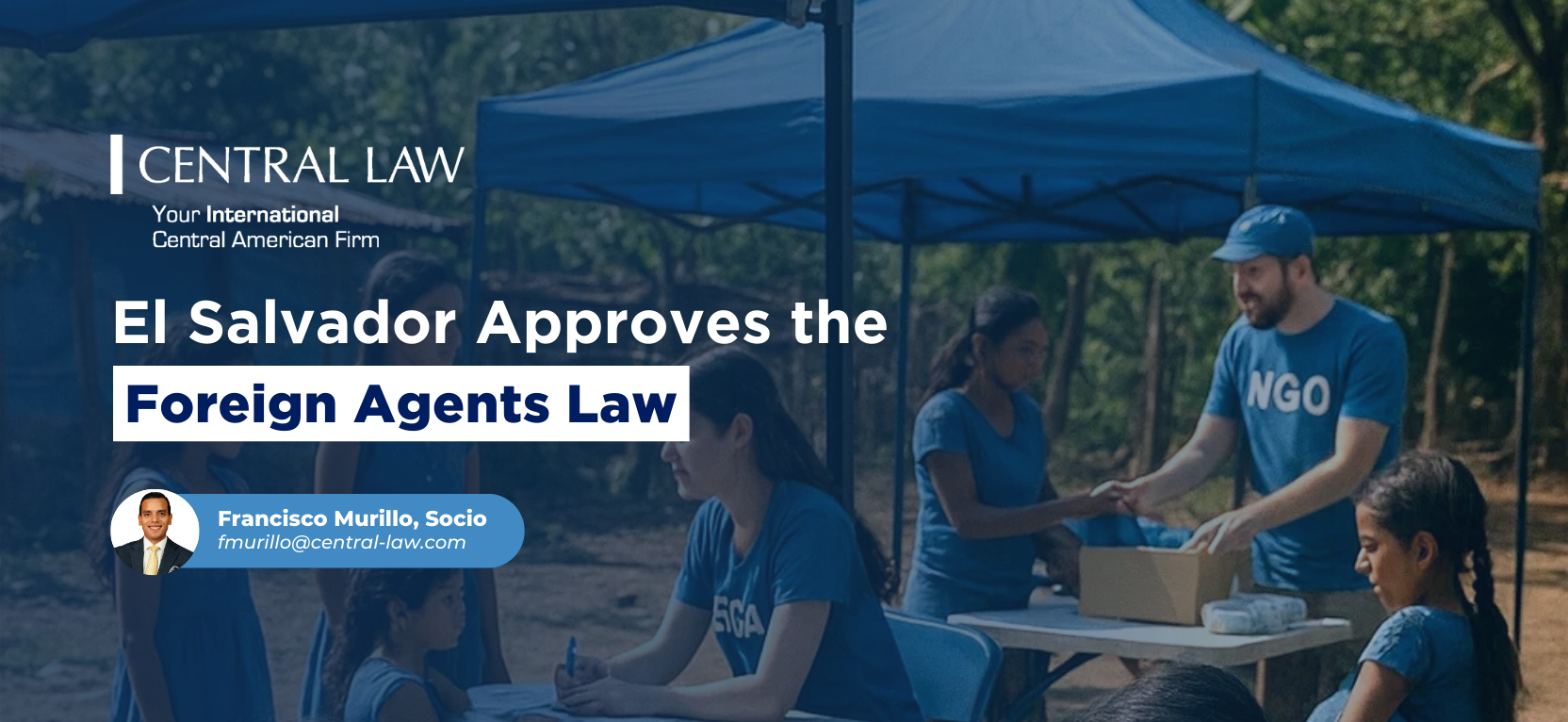In May 2025, the Legislative Assembly of El Salvador approved the Foreign Agents Law, a legal framework that establishes a new regulatory regime for natural or legal persons, whether national or foreign, who receive funds, goods, or services from abroad and carry out activities within the country.
This legislative step marks a significant shift in the relationship between the State and organizations operating with international cooperation, particularly those engaged in social, technical, or human rights-related work.
Who is subject to the law?
The regulation defines “foreign agents” as any individual or entity receiving resources from abroad, regardless of nationality or legal form. Those most directly affected include:
- Non-governmental organizations (NGOs)
- Non-profit foundations and associations
- Branches of foreign entities
- Companies or individuals channeling funds from abroad
This means that even organizations legally established in El Salvador may be classified as foreign agents if they receive external financial support.
Main obligations
Entities subject to the law must comply with a series of requirements, including:
- Registration in the Registry of Foreign Agents (RAEX), administered by the Ministry of the Interior
- Periodic reports detailing income, expenditures, and activities funded with foreign resources
- An explicit prohibition against allocating funds to political campaigning, influence operations, or interference in internal affairs of the State
- A mandatory label as “Foreign Agent” on all communications, reports, and public campaigns
- Payment of a special contribution of 30% on all funds, goods, or resources received from abroad, unless formally exempted
Are there any exclusions?
Yes. Article 5 of the law acknowledges that some cases may be excluded from general obligations. Interested individuals or entities may formally request exclusion from RAEX, which will assess factors such as:
- The nature of the project
- The origin and destination of the funds
- The type of work or service being performed
- Strict compliance with declared purposes
In other words, exclusion is not automatic—it is subject to a qualification and authorization process.
What about exceptions to the 30% contribution?
In addition to exclusions, the law provides for specific exceptions to the 30% contribution, in cases such as:
- Technical or humanitarian cooperation channeled through the State or duly accredited entities
- Family remittances or payments for personal services unrelated to political activities
- Personal transfers that are non-ideological, non-partisan, and do not involve political interference
Such exceptions must be properly documented and substantiated to be formally recognized.
Consequences for non-compliance
Sanctions may include:
- Fines
- Cancellation of registration
- Suspension of operations
- Possible referral to the Office of the Attorney General of the Republic
Practical recommendations
In light of this new legislation, at CENTRAL LAW we recommend that all entities and individuals receiving international cooperation:
- Evaluate whether they qualify as foreign agents
- Prepare in advance the necessary financial and documentary compliance mechanisms
- Consult with us regarding the need for registration and/or the possibility of requesting exclusion or exemption
This law significantly alters the operational landscape for many organizations in El Salvador. Proper legal interpretation and compliance will be essential to avoid legal contingencies and ensure the continuity of projects funded from abroad.
Francisco Murillo
Partner
El Salvador




